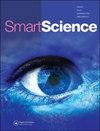Learning to schedule (L2S): adaptive job shop scheduling using double deep Q network
IF 1.4
Q2 MULTIDISCIPLINARY SCIENCES
引用次数: 1
Abstract
ABSTRACT The stochasticity and randomly changing nature of the production environment posed a significant challenge in developing real-time responsive scheduling solutions. Many previous scheduling solutions assumed static environments, user-anticipated, and hand-crafted dynamic scenarios. However, real-world production environment events are random and unpredictable. This study considers Job Shop Scheduling Problem (JSSP) as an iterative decision-making problem, and Deep Reinforcement Learning (DRL)-based solution is designed to address these challenges. A deep neural network is utilized for function approximation, and the input feature vectors are extracted iteratively to be used in the sequential decision-making process. The production states are expressed with randomly changing feature vectors of each job’s operations and the corresponding machines. This work proposes Double Deep Q Network (DDQN) methods to train the model. Results are evaluated on the renowned OR-Library benchmark problems. The evaluation result indicates that the proposed approach is comparative in benchmark problems, and the scheduling agent can get good results in unseen instances with an average of 94.86% of the scheduling score. Graphical abstract学习调度(L2S):使用双深度Q网络的自适应车间调度
摘要生产环境的随机性和随机变化性对开发实时响应调度解决方案提出了重大挑战。以前的许多调度解决方案都假设了静态环境、用户预期和手工制作的动态场景。然而,现实世界中的生产环境事件是随机的和不可预测的。本研究将作业车间调度问题(JSSP)视为一个迭代决策问题,并设计了基于深度强化学习(DRL)的解决方案来应对这些挑战。利用深度神经网络进行函数逼近,迭代提取输入特征向量,用于序列决策过程。生产状态用每个作业的操作和相应机器的随机变化的特征向量来表示。本文提出了双深度Q网络(DDQN)方法来训练模型。结果是根据著名的OR库基准问题进行评估的。评估结果表明,该方法在基准问题上具有可比性,调度代理在看不见的情况下可以获得良好的结果,平均调度得分为94.86%。图形摘要
本文章由计算机程序翻译,如有差异,请以英文原文为准。
求助全文
约1分钟内获得全文
求助全文
来源期刊

Smart Science
Engineering-Engineering (all)
CiteScore
4.70
自引率
4.30%
发文量
21
期刊介绍:
Smart Science (ISSN 2308-0477) is an international, peer-reviewed journal that publishes significant original scientific researches, and reviews and analyses of current research and science policy. We welcome submissions of high quality papers from all fields of science and from any source. Articles of an interdisciplinary nature are particularly welcomed. Smart Science aims to be among the top multidisciplinary journals covering a broad spectrum of smart topics in the fields of materials science, chemistry, physics, engineering, medicine, and biology. Smart Science is currently focusing on the topics of Smart Manufacturing (CPS, IoT and AI) for Industry 4.0, Smart Energy and Smart Chemistry and Materials. Other specific research areas covered by the journal include, but are not limited to: 1. Smart Science in the Future 2. Smart Manufacturing: -Cyber-Physical System (CPS) -Internet of Things (IoT) and Internet of Brain (IoB) -Artificial Intelligence -Smart Computing -Smart Design/Machine -Smart Sensing -Smart Information and Networks 3. Smart Energy and Thermal/Fluidic Science 4. Smart Chemistry and Materials
 求助内容:
求助内容: 应助结果提醒方式:
应助结果提醒方式:


